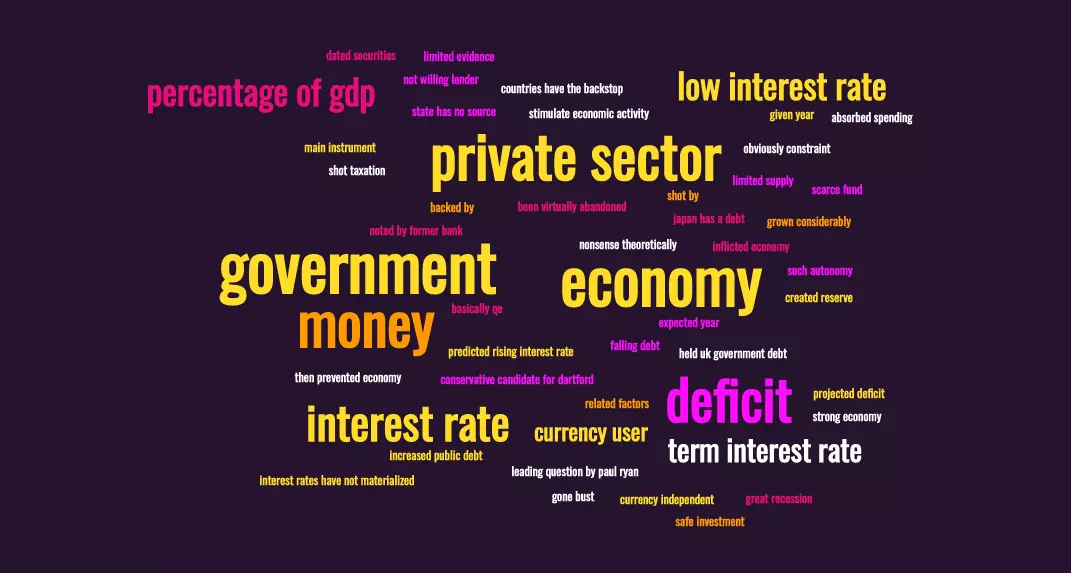In all Western capitalist states, labour incomes and their purchasing power are declining. This is true for precariously employed low-wage workers up to the middle classes, and this again especially for women and migrants. Even if labour incomes are increased a bit - rents, costs for energy and medical services, transportation and privatized infrastructure rise faster. This also reduces pensions and their purchasing power for the majority of populations in the “rich“ Western capitalist states, in the U.S., Great Britain and also in the European Union.
The multiple crises of state, company and private pensions
For this purpose, insurance companies and banks have long since developed a new business segment: private supplementary pensions. In most capitalist states, they are tax-subsidized by the governments. However, private insurers collect high fees, and investing the money paid in on the capital markets is risky and subject to many crises. The previous private pensions, tax-subsidized by the state, such as the "Riester pension" in Germany since 2001, are now proving to be a fraud and a loss for the payers by the millions.
The supplementary occupational pension, which is also subsidized by the state, only brings something to the better-paid and permanent employees, above all to managers up to the level of board members and managing directors - for a growing number of dependent employees who need it most, this supplementary pension brings nothing.
That is why the new and powerful capital organizers have invented a new private pension. With the help of the "people's share" called Exchanged Traded Funds (ETF), the risks are to be avoided: paying in can start with just a few euros, the amount is not fixed - and the fees are almost zero. Magical, isn't it?
But who are the new wizards? The biggest are called BlackRock and Vanguard. Ever heard of them? Then it's about time! Dangerous magic!
The new capital powerful BlackRock & Co.
The biggest wizard of this kind is BlackRock Corporation. This capital organizer is currently a co-owner, say as a shareholder, in 18,000 banks, companies and financial service providers, primarily in the U.S. and in the Western member states of the EU, but also the U.K., Canada, Australia, Mexico, Singapore and also China. Such a numerous simultaneous presence of a single owner has never been seen before in the history of capitalism.
Yet BlackRock is only the tip of the current, newly formed capitalist iceberg. The next largest capital organizers of this new kind are Vanguard, State Street, Capital Group, Amundi, Wellington, Fidelity, T Rowe Price, Pimco, Norges. Most and the largest are headquartered in the USA and are, in varying compositions, the determining shareholders of the largest Western banks, corporations and financial service providers, also, for example, of the largest oil, car, agribusiness and defence corporations, not least also of the largest digital corporations Amazon, Google, Facebook, Apple and Microsoft. In Germany, they are represented in all 30 DAX companies and also, for example, in Germany's four largest housing groups, Vonovia, Deutsche Wohnen, LEG and TAG.
At the same time, the two largest of these new directors of the super-rich, BlackRock and Vanguard, dominate the issuance and trading of the "people's share" ETF, with about three-quarters of the market volume.
ETF as a tool of the new "sustainable capitalism"
BlackRock CEO Fink has been the recognized spokesperson for the "renewal" of capitalism, especially in terms of the environment and climate, for several years, in part through his appearances at the World Economic Forum (Davos). The program words are Green Capitalism, Inclusive Capitalism, Reset of Capitalism, stakeholder capitalism.
Fink begins by correctly noting that the governments of the West are increasingly failing to meet the expectations of their populations. As an alternative, however, Fink & Co strive not to democratize states, such as collecting taxes, making labour incomes human rights, and expanding public infrastructure.
The new sustainable capitalism also includes the new form of the "people's share". After the rise with the help of the capital of the super-rich, BlackRock&Co have moved to develop a capital investment for the mass of dependent employees as well: All people should become shareholders. This is also propagated by the long-time BlackRock lobbyist in Germany, Friedrich Merz.
ETF is a so-called index fund: With it, one does not buy the share of a certain company, but a simultaneous share in all companies of an index. An index is formed, for example, by the 500 leading U.S. stock corporations in the S&P 500 (New York Stock Exchange), the 40 leading stock corporations in France in the CAC (Paris Stock Exchange), the 30 leading stock corporations in Germany in the DAX (Frankfurt Stock Exchange) and also the 20 leading stock corporations in Belgium in the BEL20 (Brussels Stock Exchange).
So if you buy an ETF of the DAX, you have shares in all these 30 companies at the same time. Thereby the following advantages are promised with ETF:
*Because this security is simultaneously involved in all 30 companies, the risk is spread: if, for example, the share of Deutsche Bank or Siemens should fall in value, this has little effect on the total value of all shares and the loss is only small.
*Because ETFs require no management effort and BlackRock manages the ETFs with the help of algorithms via its automated data exploitation subsidiary Aladdin, buyers incur only minimal fees: e.g. only 0.5 per cent in contrast to traditional asset management, which costs around 2 per cent.
BlackRock&Co also form and sell many other index funds in addition to the aforementioned national index funds, e.g., with the shares of several real estate, commodity and energy companies, and more recently with renewable energy companies (environmental index funds). So that the green better-earners can put their assets into sustainable capitalism.
BlackRock's subsidiary iShares acts as an ETF seller for BlackRock. iShares sells the ETFs in large packages to the normal, traditional banks, savings banks and asset managers: they then sell the ETFs in small parts to the end customers.
The new people's share - at the same time, labour income is falling
ETFs can indeed be safe for a limited period, namely in phases of general or at least average rise of listed shares. This is also true for special index funds, such as for wind or solar energy, for robots and video games, which are on the upswing economically.
But there is no certainty that stock values, and therefore the ETF values of CAC40, DAX30 and S&P 500, will rise permanently: in 2008, for example, the insolvency of banks, caused by financial products also promoted by BlackRock&Co, led to the "financial crisis" and the crash of most stocks. And at the same time, majorities of Western populations and dependent workers were impoverished because "their" states used a lot of money to bail out the bankrupts and infrastructure either decayed or was privatized and made more expensive.
In sum, ETFs expand the power of BlackRock&Co:
*ETFs expand the volume of capital deployed by BlackRock&Co and thus their monopoly or oligopoly,
*BlackRock&Co remain the ETF's agents under stock law, and buyers have no voice in shareholder meetings,
*Because BlackRock&Co are also at the same time the owners of the "real", the primary shares, they control the performance of these shares, which in turn are the basis for the performance of the secondary shares, the ETF.
Because BlackRock&Co at the same time remain the controlling shareholders of the digital, auto, pharma, construction, cement, logistics, defence, finance and insurance corporations and banks and financial services providers (such as Wirecard), the buyers of the people's stock are at the same time impoverished, especially as dependent employees and as buyers of energy, health care, medicines and the like.
Growing working and pension poverty in the EU
The EU also promotes the legalization and further spread of "atypical" work, i.e. precarious, temporary, part-time and migrant work. The "atypical" forms of work also include the zero-hours contract based on the British model: employment relationships without a guaranteed number of working hours, which can sometimes be zero hours per week.
In addition, there is gig working and crowd working: completion of individual, even very small work projects - starting at a fee of 1 euro - without an employment contract, the order is placed via an app on the smartphone. There is no collective bargaining, the actual client usually remains anonymous. The EU codified this in the European Pillar of Social Rights (ESSR) in 2017 and reaffirmed it as the basis of future labour rights at the EU Social Summit in Portugal on May 7-8.
Work is being divided into smaller and smaller portions, with or without a labour contract. Platform corporations such as Deliveroo, Uber, WeWork, Mechanical Turk and PeepleForHour are enforcing solo self-employment for workers, preventing regular, contractual employment relationships as much as possible, and hating unions and collective bargaining agreements, according to the latest developments according to the International Labor Organization (ILO) report, The World Employment and Social Outlook. The role of digital labour platforms in transforming the world of work (Geneva Feb. 23, 2021). This development will be accelerated by the Corona policy.
The European Commission, therefore, foresees growing labour poverty throughout the EU in the future, with further aggravation among women and migrant workers. This is another reason why the Commission recommends additional forms of private pension provision - although it does not say where precisely these people should get the money for this.
BlackRock's private pension
So, on the one hand, BlackRock&Co are contributing to the shrinking of economies and labour incomes - and at the same time, the impoverished are offered ETFs as a way to accumulate wealth and as a good supplement not only to declining state pensions but now also to supplement occupational and private pensions, which are also declining. This situation applies in principle to the entire U.S.-led West, including EU countries.
BlackRock advertises in the EU that its system has been on the upswing in the U.S. for three decades and has also been legislated in other countries for several years, including the U.K., Australia, New Zealand and Japan. Everywhere, he said, state pensions are getting lower and lower, and the numerous pension reforms, including life insurance, have not worked out. Everywhere, he said, employees are dissatisfied and demanding new solutions.
So in 2019, BlackRock summarized its activities with hopeful eyes on the BlackRock-inspired reform in France - the Macron government's legislative package had cleared the first hurdle in the National Assembly.
Pan European Personal Pension Product (PEPP):
The "Europe Pension"
BlackRock's agent of influence at the European Commission was, in particular, the former finance minister of the Tory government in England, George Osborne. Even as a minister, he had championed private pensions using BlackRock's ETF financial product. When he left the government in 2016, he immediately became a highly paid BlackRock lobbyist. At the same time, the consulting firm Ernst&Young produced a study on behalf of the European Commission: according to this study, assets under management in private pensions in the EU could grow from €0.9 trillion in 2017 to €2.1 trillion in 2030.
Thus, in 2017, the European Commission published a proposal for a regulation on a "pan-European personal pension product": in English, it is called Pan European Personal Pension Product. It is publicly touted with the acronym PEPP. According to the Commission, this would enable people to "top up" their existing state and occupational pensions and also provide for their old age independently of pensions. This also applies to the self-employed, farmers, the unemployed and even students: everyone can and should make provisions for their old age, from their youth onwards.
However, because there are now so many different offers in the many EU member states, the EU has developed a standardized, regulated, transparent and, if possible, cheap financial product and given it a "seal of approval. The EU regulates this in the "Legal Framework for the Creation of a Successful European Market for Simple, Efficient and Competitive Products for Private Pensions“. The final regulation came into being with the approval of the European Parliament on June 20, 2019.
The EU favours tax incentives as already practised for existing private supplementary pensions in some states such as the "Riester pension" in Germany. And BlackRock lobbyists, such as the CDU politician Friedrich Merz in Germany, are demanding that the government also provide tax incentives for the new private ETF pension.
Entering France with Macron: Loi PACTE
BlackRock has operated a branch in Paris since 2006 and has taken on more and more ownership stakes in France's major companies. Thus, BlackRock also became a major shareholder of the most important companies in France, i.e., at the same time in AXA, Vinci, Saint Gobain, Sanofi, Société Générale, BNP Paribas, Michelin, Vivendi, Lafarge Holcim, Alstom, Air Liquide, Accor, Schneider, Total, unibail rodamco, Valeo, Engie, for example. This makes BlackRock the largest corporate owner in France. Ownership is divided between traditional shares and ETF shares in the French stock market index CAC.
The Macron-BlackRock private pension is built rather inconspicuously into a comprehensive economic law: The Law on the Action Plan for the Growth and Transformation of Enterprises (Plan d' action pour la croissance et la transformation des Entreprises, PACTE). It was passed in the National Assembly on April 11, 2019, with the majority of the Macron government.
The law facilitates the creation and also dissolution of companies. Companies are granted further tax relief. The corporate share of social security contributions will be reduced from 20 to 16 per cent. The sale of state property, such as Paris airport, is encouraged.
At the same time, more capital is to be made available to companies for their expansion and innovations, and this is to be achieved by as many employees as possible becoming shareholders in their company. Intercompany funds are being set up for this purpose, especially for smaller companies with fewer than 250 employees. The payments made by employees into the company fund are tax-subsidized by the state. And to ensure that low-wage earners, who do not have to pay any taxes at all, also participate, they receive an annual "tax credit" from the state of 15 to 30 per cent on 1,000 euros.
Coercion and incentives
Employee participation is encouraged by both coercion and incentives. 1. employees' contributions are to increase with each wage increase, automatically. 2. as an incentive, companies are to participate with small contributions.
Employees should be able to transfer existing life insurance policies to the new funds. The accumulated assets are to be used flexibly, e.g. by being paid out at the start of retirement - and then transferred to new investment.
For executives, the assessment threshold for paying into traditional pensions will be lowered from 27,000 to 10,000 euros a month: this is intended to make more of their salary available for buying employee shares and ETFs.
Reductions and lifelong working
*Times of unemployment are not evaluated according to the previous average salary, but only according to the eventual compensation. Those who do not receive compensation do not receive pension points.
*Survivor's pension is limited to surviving spouse. Previous spouses lose all entitlements.
*Terms of study are not credited.
Part-time retirement is encouraged. Those who retire earlier are penalized; those who retire later are rewarded. According to the current logic, this tends to result in lifelong working, at least as long as forces can still be mustered for even the smallest additional earnings in old-age poverty. This is because the other labour laws of the governments of Francois Hollande and then Macron - part-time, temporary project work, individual company collective agreements instead of supra-company collective agreements - exacerbated by digitization, promote working poverty, with it pension poverty and thus the compulsion to continue working even during retirement.
National pension fund and BlackRock
Government oversight of the funds is to be entrusted to a National Universal Pension Fund. It determines the value of the pension points and thus the amount of the payouts. Here, the government can intervene directly and redefine pensions each time after assessing the state of the economy as a whole.
And now comes the most important thing: The funds are controlled by professional fund managers such as BlackRock (Gestion pilotée); BlackRock advertises that the funds can also buy low-cost financial products in financial havens such as Luxembourg and Ireland. And BlackRock founded the subsidiary BlackRock Retirement Solutions Group (retirement solutions) in 2019.
To make fees cheaper, the funds will be operated digitally. For this purpose, all employees will receive a digital identification number. For digital management, BlackRock has bought in 2019 in France the young Parisian company eFront with 700 employees, leader in software for "alternative investments". BlackRock combines eFront with the global risk and speculation analytics of its data processing mastermind ALADDIN.
The "reform" is on hold - BlackRock moves on
The Loi PACTE, especially the pension section, was heavily protested in France. On January 7, 2020, railroad workers from the CGT union invaded BlackRock's French branch in Paris and held a rally.
The Senate, as the second chamber of Parliament, drafted a critical opinion, but the final resolution has not yet taken place. Finally, the Corona pandemic hit: Loi PACTE is on hold.
But BlackRock continues. In March 2021, the BlackRock ESG Euro Short Duration Bond bond fund came to market. It is a subfund of the BlackRock Strategic Fund (BSF), which is also invested in the financial haven of Luxembourg. ESG means: the fund takes into account the sustainability criteria of the ESG program: E=Environment/Environment, S=Social, G=Governance/Good Corporate Governance. It was developed by Western Finance with significant involvement from BlackRock - and BlackRock also advises the European Commission on this.
Alternative perspectives
The EU and the main European governments like in France, Germany, the UK (before and after Brexit), Italy, Spain, Poland, Hungary promote working and old-age poverty for the majority of dependent employees. The volume of work is being divided into ever smaller and temporary parts. Digitized work is increasingly performed without an employment contract. In addition, the working life is being extended more and more. Many pensioners have to continue working on the side.
However, the working poor is also the working sick: health is deteriorating, and the time that can be spent in good health in old age is becoming shorter for an ever-increasing number of retirees - despite rising life expectancy.
In contrast, a whole new approach is needed in the design of pensions and retirement as a whole. Pension "reforms" to date, including supplementary occupational and private pensions, have increased pension inequality, pension injustice and deterioration for the majority of dependent employees.
In contrast, the technically and now increasingly digitally increased productivity, its opportunities and results must be distributed fairly, for example through a general reduction in working hours. This can also only be achieved through the expanded political collectivity of employees. This also means raising the pension level for the majority.
Furthermore, the retirement period, the so-called retirement, cannot and must not be designed as the endpoint, but as the beginning of a freer, creative phase of life. Moreover, longer life expectancy must not be devalued by increased rates of illness, as has already begun to happen.
Oh, by the way: The high pensions of civil servants are not in danger
Incidentally, the overall picture of old-age pensions is as follows: 1. the pensions of civil servants are much higher than the pensions of dependent employees, 2. the level of pensions will not be endangered in the future, and 3. pensions will be paid for longer because civil servant pensioners have a longer life expectancy due to their better living situation.
Let's now compare pensions and annuities. The figures are for 2019:
*For the 1.7 million pensioners, widows and orphans, the German state - federal, state, local - spends 57 billion euros annually. That's an average of 2,793 euros per month. But that's not all, because on top of that there are state subsidies for health services. And, as already mentioned, retirees draw their pensions more often because they live longer.
*The 21 million pensioners, widows and orphans receive 290 billion euros in pensions each year. That's an average of 1,150 euros a month, and they don't have allowances on top of that, and some health benefits have to be paid for in addition. It should also be taken into account: Even in the ideal case with 45 years of contributions, the gross pension for average earners amounts to 1,539 euros, and 1,650 euros with Riester provision.
While the pensions of dependent employees will continue to fall as a result of low wages, which are further promoted by the state and the EU (if we allow this to happen as it has in the past), the situation is quite different for pensions. Thus the entrepreneur, professor and civil servant post office FAZ states correctly: "The legal pension has largest financial emergency still before itself". But at the same time, the FAZ beamingly announces for the benefit of its clientele: "Surprising relaxation in civil servant pensions".
Equality of living conditions? Equality of health conditions? Democracy?






